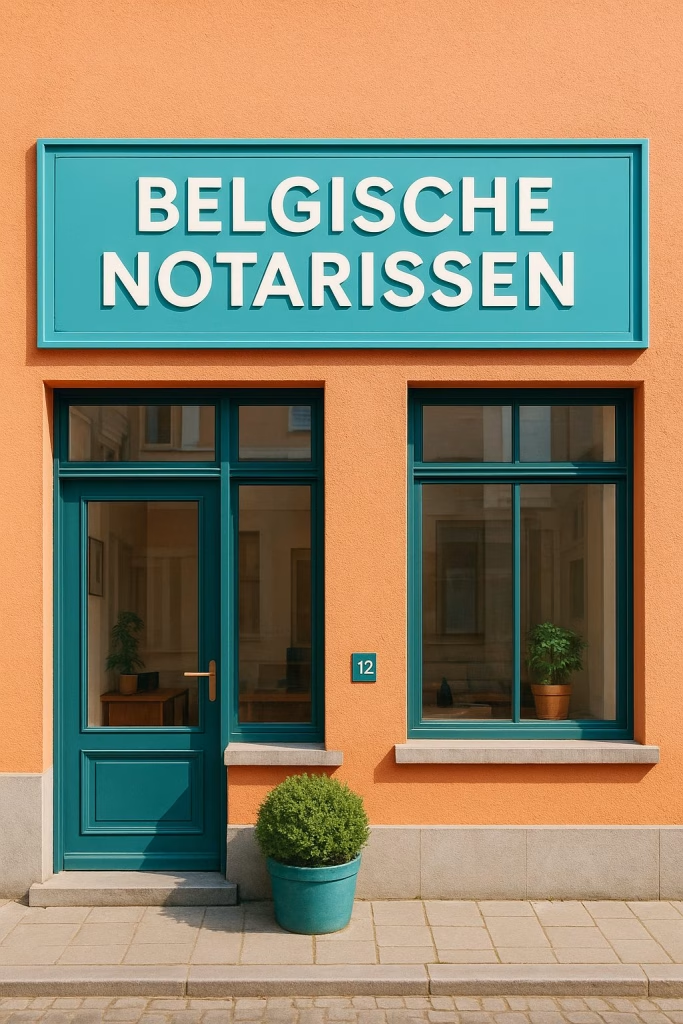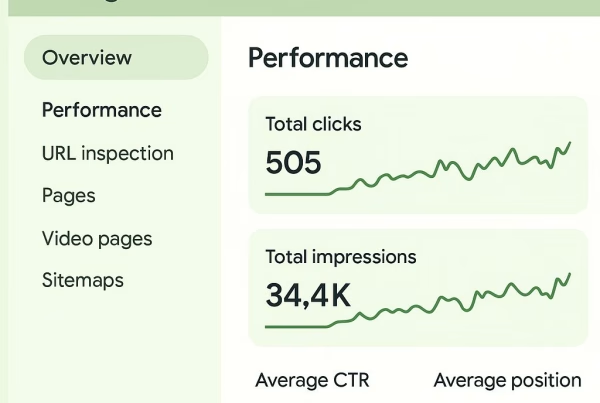In my 15 years consulting Belgian legal professionals, I’ve witnessed countless notaries struggle with a fundamental challenge: how do you attract clients in a market where trust is paramount, yet competition is fierce? Most Belgian notaries I’ve worked with initially believe that word-of-mouth referrals are sufficient for their practice. However, crafting SEO strategies that resonate in Dutch, French, and German ensures that businesses speak the language of their varied audience segments, and this multilingual complexity creates both unique opportunities and significant challenges for Belgian legal services.
The digital transformation has fundamentally altered how Belgian citizens search for notarial services. Whether someone in Brussels needs assistance with property transfers, estate planning in Antwerp, or business law advice in Ghent, they’re increasingly turning to search engines before picking up the phone. This shift demands a sophisticated approach to SEO that respects Belgium’s trilingual environment while meeting the exacting standards clients expect from legal professionals
Meertalige Zoekwoordstrategie

Belgium’s unique linguistic landscape presents both challenges and opportunities that I’ve rarely encountered elsewhere in Europe. During a recent consultation with a Brussels-based notary, we discovered that their French-language pages were ranking well in Wallonia, but their Dutch content was barely visible to Flemish clients searching for identical services.
The key to successful multilingual SEO for Belgian notaries lies in understanding search intent across linguistic regions. Flemish clients often search for “notaris Antwerpen” or “testament opstellen,” while Walloon clients use terms like “notaire Liège” or “succession planification.” German-speaking clients in the Eastern cantons add another layer of complexity with searches like “Notar Eupen” or “Erbrecht Beratung.”
Regionale Zoektrends
- Flanders: Higher search volume for real estate transactions (vastgoed, onroerend goed)
- Wallonia: Increased searches for family law and inheritance matters (droit familial, succession)
- Brussels-Capital: Mixed-language searches with emphasis on international legal services
- German-speaking community: Specialized searches for cross-border legal matters
Creating separate, optimized content for each linguistic region isn’t just about translation—it requires understanding cultural nuances in how different communities approach legal services. Flemish clients often prefer detailed, technical explanations, while Walloon clients typically respond better to relationship-focused messaging.
Lokale SEO Optimalisatie
Local SEO for Belgian notaries requires a nuanced understanding of how Google treats Belgium’s complex administrative structure. The Belgian notary advises citizens, and drafts authentic acts in many aspects: family law, succession law, business law, but visibility depends heavily on proper local optimization across all three linguistic regions.
I’ve found that successful Belgian notaries optimize for multiple location types simultaneously. A notary in Brussels, for instance, should optimize for:
Geografische Targeting Lagen
- Gemeente/Commune level: “notaris Schaarbeek” or “notaire Uccle”
- Provincie/Province level: “notaris Vlaams-Brabant” or “notaire Brabant wallon”
- Regional level: “notaris Brussel” or “notaire Bruxelles”
- District level: Business districts like “notaris Louizalaan” or “notaire Avenue Louise”
Google My Business optimization becomes particularly complex in Belgium because you need to manage listings that serve multilingual audiences. Your business description, services, and posts should reflect the linguistic preferences of your local community while remaining discoverable to visitors from other regions.
Technische SEO Uitdagingen
Belgian notaries face unique technical SEO challenges that I rarely encounter with other professional services. The trilingual nature of most notarial websites creates complex URL structures, hreflang implementations, and content organization challenges.
One Brussels notary I worked with had inadvertently created duplicate content issues by directly translating pages without considering how legal terminology differs between languages. “Erfrecht” in Dutch encompasses slightly different legal concepts than “droit successoral” in French, requiring distinct content approaches rather than simple translations.
GDPR en Privacy Compliance
Belgian legal websites must navigate particularly strict privacy requirements. Beyond basic GDPR compliance, notaries handle sensitive personal and financial information that demands additional security measures. This creates SEO challenges around:
- Contact form optimization: Balancing conversion optimization with privacy protection
- Client testimonial collection: Managing consent for public reviews of legal services
- Analytics implementation: Ensuring tracking complies with Belgian privacy regulations
- Cookie management: Implementing compliant tracking without hurting user experience
The intersection of legal ethics and digital marketing creates additional compliance considerations. Belgian notaries must ensure their online marketing doesn’t violate professional conduct rules while still competing effectively in search results.
Content Marketing Strategieën
Content marketing for Belgian notaries requires balancing authority with accessibility across multiple languages and legal systems. I’ve learned that successful content strategies for Belgian legal services must address the reality that many clients are unfamiliar with the civil law system’s approach to notarial services.
Educatieve Content Types
Creating valuable content that ranks well requires understanding what Belgian citizens actually search for when they need notarial services:
- “Wat doet een notaris” content: Explaining the notary’s role in Belgian civil law
- Process guides: “Huis kopen stap voor stap” or “Étapes succession Belgique”
- Cost transparency: Addressing fee structures in each linguistic region
- Cross-border guidance: Helping expats navigate Belgian legal requirements
- Family law explanations: Demystifying Belgian inheritance and marriage laws
The most successful content I’ve seen addresses specific Belgian legal contexts rather than generic legal advice. For instance, explaining the differences between “vruchtgebruik” and “eigendom” in Dutch, or clarifying “usufruit” versus “nue-propriété” in French, provides genuine value that competitors can’t easily replicate.
Conversie Optimalisatie
Converting website visitors into clients presents unique challenges for Belgian notaries. Unlike other service industries, legal services require establishing trust and demonstrating competence before potential clients will make contact.
In my experience working with notaries across Belgium, the highest-converting websites focus on reducing barriers to initial consultation rather than pushing for immediate appointments. This means optimizing for micro-conversions like:
Trust-Building Elements
- Multilingual testimonials: Client reviews in appropriate languages for each region
- Professional credentials: Clear display of notarial qualifications and specializations
- Association memberships: Highlighting membership in regional notarial chambers
- Office accessibility: Physical location details that reassure clients about legitimacy
- Response time commitments: Clear expectations for consultation scheduling
Belgian clients often prefer phone consultations over email contact, particularly for sensitive legal matters. This preference varies by region and generation, requiring flexible contact optimization strategies.
Social Media Integration
Social media presents particular challenges for Belgian notaries due to professional conduct restrictions and the trilingual market reality. However, I’ve seen successful integration strategies that respect ethical boundaries while building brand awareness.
LinkedIn proves most effective for Belgian legal professionals, particularly for B2B services like business law and corporate transactions. Facebook works well for estate planning and family law services, especially when targeting specific geographic regions with appropriate linguistic content.
Platform-Specific Strategies
- LinkedIn: Professional thought leadership in business law and regulatory updates
- Facebook: Community engagement around estate planning and family legal questions
- YouTube: Educational videos explaining Belgian legal processes
- Google My Business: Regular updates about office hours, special services, and legal news
The key is maintaining consistent messaging across platforms while adapting content to each platform’s audience expectations and linguistic preferences.
Analytics en Meetbare Resultaten
Measuring SEO success for Belgian notaries requires tracking metrics that reflect the unique nature of legal services marketing. Traditional e-commerce metrics don’t apply when the goal is generating qualified consultations rather than immediate online purchases.
I track several Belgian-specific metrics for notary clients:
Key Performance Indicators
- Multilingual organic traffic distribution: Understanding which languages drive the most qualified visitors
- Geographic search performance: Tracking visibility across different Belgian regions
- Service-specific rankings: Monitoring positions for high-value services like estate planning or property law
- Conversion paths: Understanding how clients move from search to consultation
- Seasonal trends: Recognizing patterns in different legal service demands
Belgian notaries often see increased searches for inheritance services in January (post-holiday family discussions) and real estate services in spring (traditional moving season). Understanding these patterns helps optimize content publishing schedules and advertising spend.
Toekomst van Juridische SEO
The future of SEO for Belgian legal services will likely be shaped by increasing automation in legal research and document preparation. Belgians citizens living abroad can grant a digital power of attorney at the Belgian notary to sign a deed remotely, indicating how digital transformation is already changing notarial practice.
AI-powered search features will require Belgian notaries to optimize for voice searches and featured snippets in multiple languages. This means structuring content to answer specific questions Belgian citizens ask about legal services, estate planning, and property transactions.
Emerging Trends
- Voice search optimization: Adapting for multilingual voice queries about legal services
- Featured snippet targeting: Structuring content to capture position zero for legal questions
- Local AI integration: Preparing for AI-powered local search features
- Mobile-first indexing: Ensuring legal websites perform well on mobile devices across all languages
- E-A-T optimization: Building expertise, authoritativeness, and trustworthiness signals
The most successful Belgian notaries will be those who embrace digital transformation while maintaining the personal touch that clients expect from legal professionals.
Actionable Recommendations for Belgian Notaries:
Success in Belgian legal SEO requires a systematic approach that respects linguistic diversity while building genuine authority in your practice areas. Start by conducting multilingual keyword research for your specific services and geographic market. Implement proper hreflang tags and create distinct, valuable content for each language rather than direct translations.
Focus on building local citations across all relevant Belgian directories and professional associations. Optimize your Google My Business presence for each linguistic community you serve, and maintain consistent NAP (Name, Address, Phone) information across all platforms.
Most importantly, remember that SEO for legal services is a marathon, not a sprint. The trust and authority required to rank well for competitive legal terms takes months to build, but the long-term benefits of systematic SEO implementation far outweigh the initial investment.
Belgian notaries who implement these strategies consistently while respecting professional conduct requirements will find themselves well-positioned to capture the growing number of clients who begin their search for legal services online.






